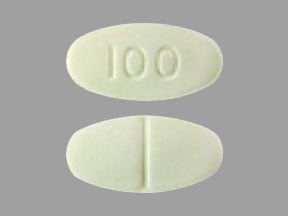My prescription
Edit
100MG, Clozapine (90 Tablets)
Select pharmacy

CVS
$66.15
COUPON PRICE
Walgreens
$48.16
COUPON PRICE
Walmart
$60.09
COUPON PRICE
Albertsons
$65.36
COUPON PRICEClozapine savings card
Show this card to your pharmacist
Walgreens
$48.16
BIN
ID
PCN
GRP
015995
LHKPY242206
GDC
DR33
Powered by
More prescriptions for schizophrenia
More prescriptions for schizophrenia
Price history for Clozaril (brand) & Clozapine (generic)
90 Tablets, 100MG
Average retail price for Clozaril
Average retail price for Clozapine
Average SaveHealth price for Clozapine
Our price history data is based on aggregated prescription data collected from participating pharmacies in America. Our prescription data updates daily to reflect the latest price changes. If you notice a missing data point, it means there wasn't sufficient data available to generate a monetary value for that date.
We analyzed Clozapine prices for (100MG, 90 Tablets) over the last 12 months. The average retail price was $199.80, while the average price using the SaveHealth discount card was $70.23. That's a savings of approximately 64.85% when using our Clozapine coupon.
Compared to the generic version, Clozaril had an average price of $2012.21 over the same time period. With the SaveHealth savings card, Clozapine is 96.51% cheaper on average than Clozaril.
*Retail prices are based on pharmacy claims data, and may not be accurate when we don't have enough claims.
Clozapine dosage forms
Dosage Quantity Price from Per unit 25MG 1 Tablet $2.77 $2.77 25MG 30 Tablets $10.60 $0.35 25MG 60 Tablets $18.71 $0.31 25MG 100 Tablets $36.02 $0.36 25MG 500 Tablets $129.70 $0.26 50MG 1 Tablet $3.06 $3.06 50MG 30 Tablets $19.38 $0.65 50MG 100 Tablets $63.08 $0.63 50MG 500 Tablets $247.70 $0.49 100MG 90 Tablets $60.09 $0.67
| Dosage | Quantity | Price from | Per unit |
|---|---|---|---|
| 25MG | 1 Tablet | $2.77 | $2.77 |
| 25MG | 30 Tablets | $10.60 | $0.35 |
| 25MG | 60 Tablets | $18.71 | $0.31 |
| 25MG | 100 Tablets | $36.02 | $0.36 |
| 25MG | 500 Tablets | $129.70 | $0.26 |
| 50MG | 1 Tablet | $3.06 | $3.06 |
| 50MG | 30 Tablets | $19.38 | $0.65 |
| 50MG | 100 Tablets | $63.08 | $0.63 |
| 50MG | 500 Tablets | $247.70 | $0.49 |
| 100MG | 90 Tablets | $60.09 | $0.67 |
| 100MG | 1 Tablet | $3.07 | $3.07 |
| 100MG | 100 Tablets | $65.77 | $0.66 |
| 100MG | 120 Tablets | $77.12 | $0.64 |
| 100MG | 500 Tablets | $247.70 | $0.49 |
| 200MG | 1 Tablet | $3.95 | $3.95 |
| 200MG | 60 Tablets | $69.60 | $1.16 |
| 200MG | 100 Tablets | $119.00 | $1.19 |
| 200MG | 500 Tablets | $523.00 | $1.05 |

